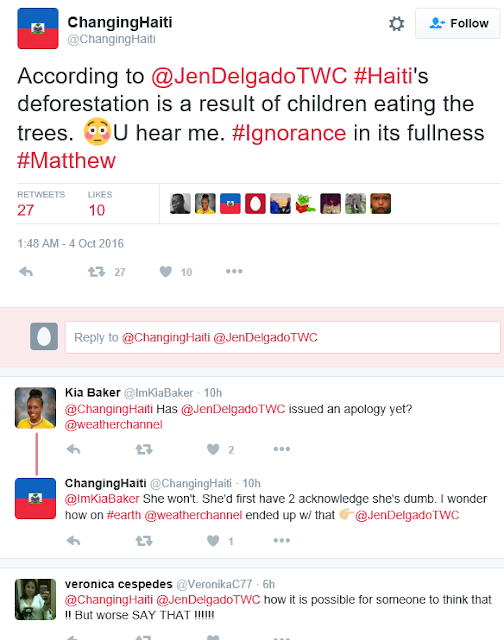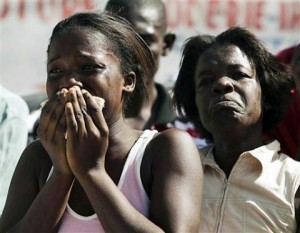The number of people killed in Haiti by Hurricane Matthew has hit 1,000 as the country battles new deaths from a cholera outbreak and buries bodies in mass graves.
The powerful hurricane, the fiercest Caribbean storm in nearly a decade, slammed into Haiti on Tuesday, whipping it with 230 kilometre an hour winds and torrential rains.
The country is struggling to cope with a rise in cholera cases with officials warning that contaminated water and a lack of hygiene are posing serious risks to thousands of people in the impoverished country.
While the capital and biggest city, Port-au-Prince, was largely spared, the south suffered devastation. Aerial footage from the hardest-hit towns shows a ruined landscape of shanties with tin roofs blown away and downed trees everywhere. Mud from overflowing rivers covered the ground.
Citing local officials, Reuters news agency reported that at least 1,000 Haitians had been killed.
Authorities began burying the dead in mass graves in some areas – such as Jeremie, a city of 30,000 people – as bodies started to decompose, said Kedner Frenel, a government official.
Frenel said there was great concern about cholera spreading, and authorities were focused on getting water, food, and medication to thousands of people living in shelters.
Cholera causes severe diarrhoea and can kill within hours if untreated. It is spread through contaminated water and has a short incubation period, which leads to rapid outbreaks.
Government teams fanned out across the hard-hit southwestern tip of the country over the weekend to repair treatment centres and reach the epicentre of one outbreak.
In the village of Labei, locals said that the river had washed down cadavers from villages upstream. With nobody coming to move the corpses, residents used planks of driftwood to push them down the river and into the sea.
Down by the shore, the corpse of one man lay blistering in the sun. A few hundred metres to his left in a roadside gully, three dead goats stewed in the toxic slime.
“It seems to me like a nuclear bomb went off,” said Paul Edouarzin, a UN Environmental Programme employee.
“In terms of destruction – environmental and agricultural – I can tell you 2016 is worse than 2010,” he added, referring to the devastating 2010 earthquake from which Haiti has yet to recover.
Diarrhoea-stricken residents in the village of Chevalier were well aware of the nearby cholera outbreak, but had little option except to drink the brackish water from the local well, which they believed was already contaminated by dead livestock.
“We have been abandoned by a government that never thinks of us,” said Marie-Ange Henry, as she surveyed her smashed home.
She said Chevalier had yet to receive any aid and many, like her, were coming down with fever. Cholera, she feared, was on its way.
Up to 80 percent of crops in Haiti have been lost in some areas, according to the UN Office for the Coordination of Humanitarian Affairs.
CARE France, a humanitarian group, said about one million people were in need of urgent assistance, and that many had “nothing left except the clothes on their back”.





